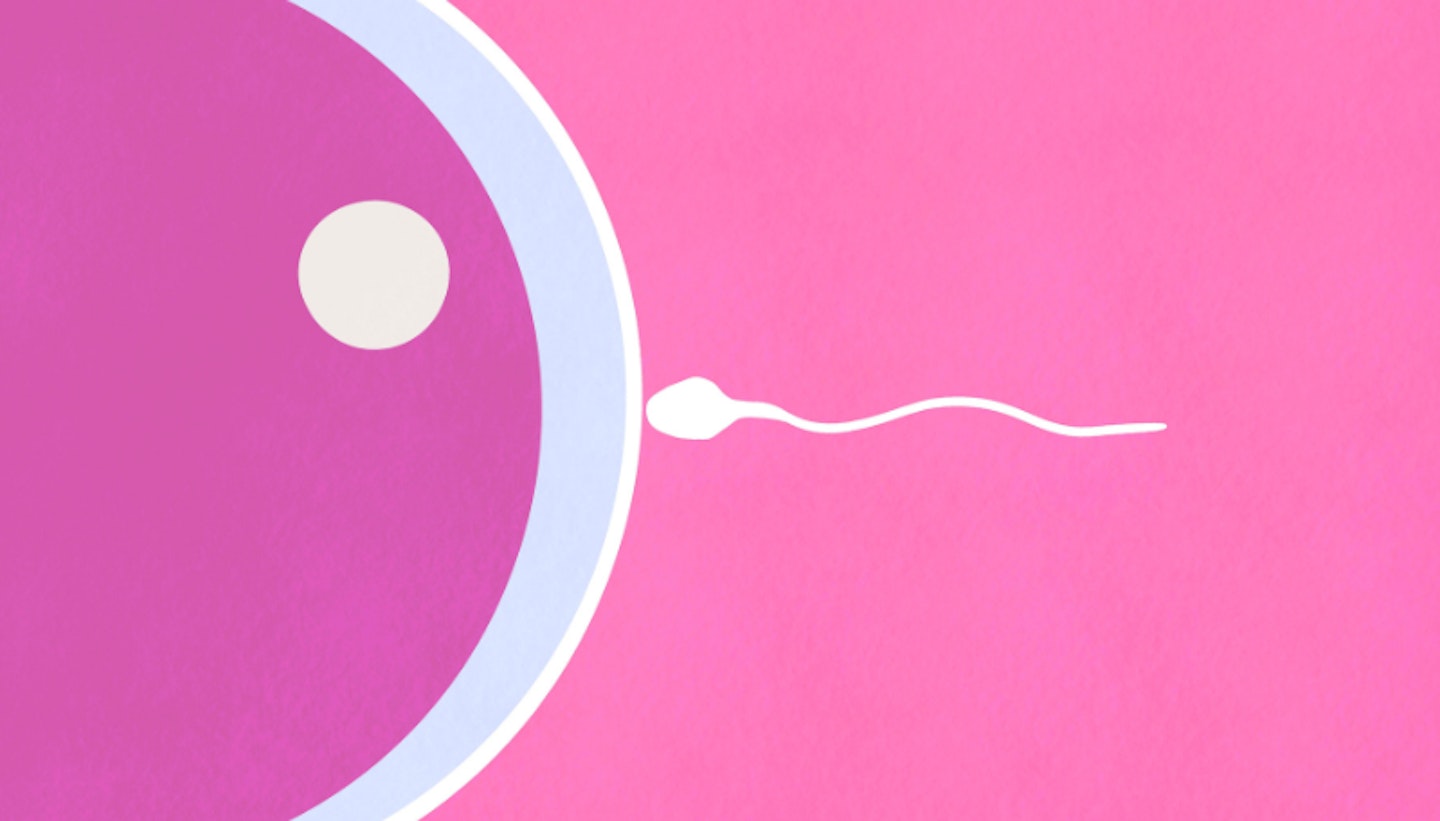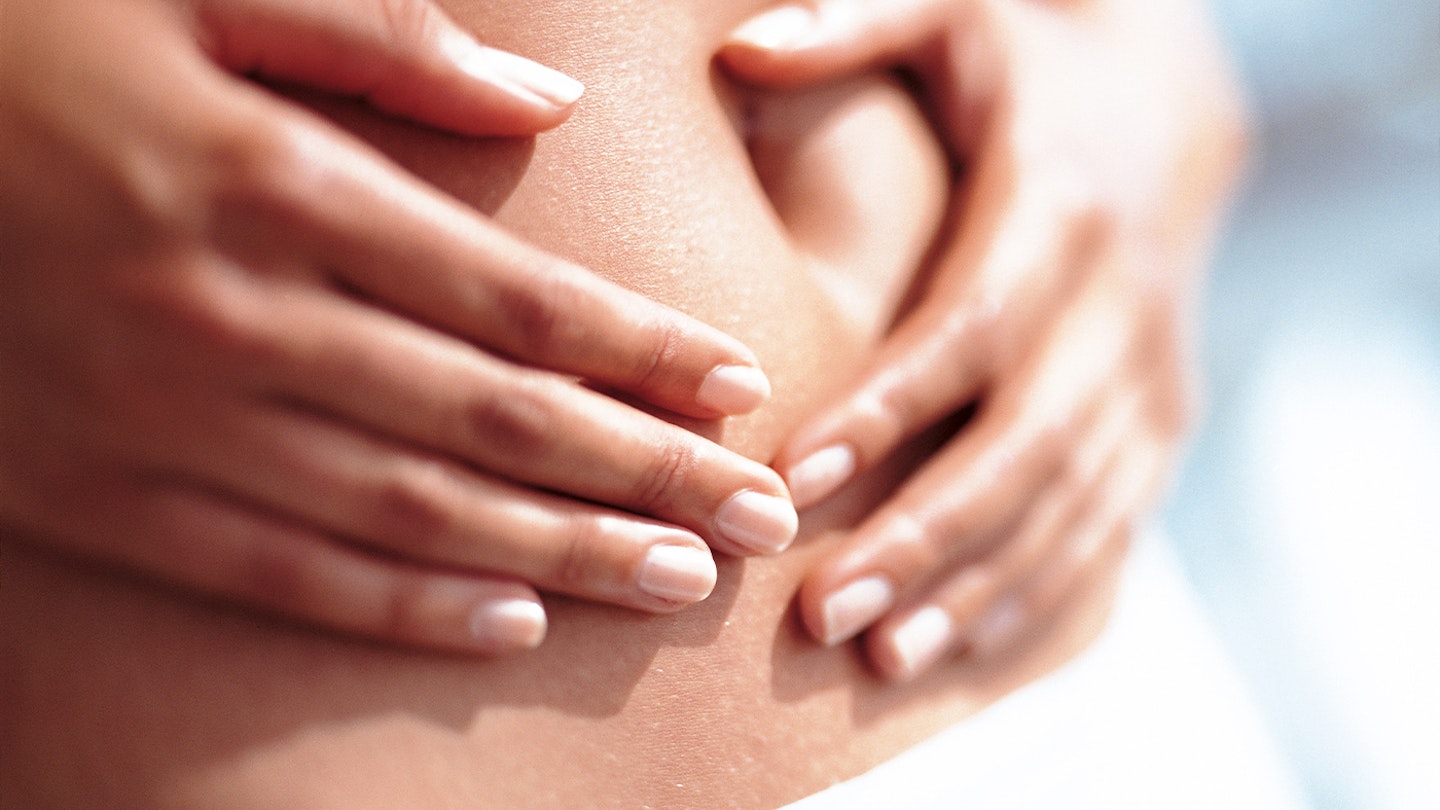Understanding the way pregnancy is dated can be a bit strange at first. At two weeks pregnant, there is still no baby and technically, you're not yet pregnant. Confused? Stay with us. Pregnancy is measured in 40 weeks, so the age of your pregnancy is calculated from the start of your last period, while the age of your baby, is calculated from the time of fertilisation.
This might seem strange and confusing at first, but basically week 2 of pregnancy is the preliminary stages, 'setting' it all up if you will. It's basically the start of ovulation when your body releases an egg, ready to potentially be fertilised by the sperm. You're officially pregnant when that egg implants itself in your womb, usually this happens a few days after the egg is released (or week 1 of your pregnancy).
2 weeks pregnant symptoms
You're not technically pregnant, but you could be in the next few days as the process has already started. You won't actually know when fertilisation occurs but if you're trying to conceive, you'll at least know when the first day of your last menstrual period was.
You're most fertile during the three days leading up to ovulation. To keep track, you can use apps or ovulation calculators to help you plan your baby-making time. If you're not tracking your dates, watch out for these signs to know when you're ovulating which could lead to the early stages of pregnancy:
• Hormonal changes at this time can make your breasts feel tender or sore.
• Your sense of smell may be heightened.
• Your discharge can become thick, sticky and creamy and start to look cloudy.
• You may notice a small amount of blood, often called 'spotting' around the time of ovulation.
• Your stomach won't feel different at 2 weeks pregnant, but you may feel cramping or pain in one side of your abdomen depending which ovary releases the egg. This is called 'Mittelschmerz' meaning 'middle pain' in German.
• It is possible your sex drive will increase - good news for those important baby-making activities.
• Some women check their cervix regularly when trying to conceive - it can become higher, softer and more open when you’re ovulating or pregnant.
At 2 weeks pregnant HCG levels
Baby development at 2 weeks pregnant

You may not have a baby in your belly yet, but it could be happening right now! It sounds very complex, and in a way it is, but our menstrual cycles are really quite amazing. We all know that a typical menstrual cycle lasts 5-7 days during which the uterine lining, (endometrium) and blood are shed causing women to have periods. Hormonal changes during this process also trigger the release of luteinizing hormone (LH) and follicle-stimulating hormone (FSH), both essential for the important bit...fertility.
These follicles are actually fluid-filled sacs containing those all-important eggs - usually only one becomes larger than the others and produces the egg. That follicle also begins to produce oestrogen which helps the lining of the womb become thicker to aid the ‘implantation’ of the egg.
In the 24 hours after the egg is released, one of the 250 million odd sperm your partner releases after intercourse, will manage to swim all the way from your vagina, through your cervix, and up to the fallopian tube, where it can penetrate the egg. Although it sounds simple, it's a really long journey and can take a few days for the little fella to reach its final destination.
What happens next?
Once his sperm makes it to your egg, the sperm’s nucleus merges with the eggs and they’ll combine in the next 10 to 30 hours. Believe it or not, this is the precise moment when the sex of your baby is actually determined. If the sperm is carrying a Y chromosome, you’ll just have conceived a boy and if it’s an X chromosome, it’ll be a girl. How exciting!
Around 10 days after conception and once the fertilized egg has attached itself to the lining of your uterus, your body starts to make human chorionic gonadotropin (hCG). This is also known as the pregnancy hormone and your body produces it in large amounts when you’re pregnant. Over the next few weeks, expect your hCG levels to increase to stimulate the production of oestrogen and progesterone, hormones that switch off menstruation and help support a healthy pregnancy.
What to do now...
Track your cycle: tracking your menstrual cycle means you will be able to know your fertile days and if you use an app, it will advise you on when to have intercourse.
Get an ovulation test: if you're close to ovulating, you can check for sure with an ovulation test. It will measure your hormones and tell you if it's time.
Keep living a healthy life: people say that living a healthy lifestyle will help you conceive faster. Drink loads of water, eat healthily and exercise regularly.
Start taking prenatal vitamins: if you haven't already, start taking vitamins, especially folic acid. It will boost your chances, help develop a healthy baby and reduce the risk of neural tube defects.
What can I do to help my body conceive?

It might sound obvious, but this is the time when you need to get into the rhythm of regular, baby-making fun. Sperm can live in your body for up to 5 days, so having regular intercourse when you're fertile can ensure strong sperm exposure for the egg. To help you, have a read of the best sex positions to try when you’re trying to conceive and check out the foods which can boost sperm count. Experts believe that certain sex positions allow your man’s sperm to get closer to your cervix. The other good news is that having an orgasm can help as the contractions draw in more sperm. So...fancy another go?
Stephanie Anthony is the Digital Editor at Mother&Baby and auntie to four aged 8 to 6 months old. With a particular interest in health, she loves discovering products that make parent’s lives easier.
Popular articles you may also like to read:
Early pregnancy symptoms: The early signs of pregnancy to know
Bloating during pregnancy
Tender breasts during pregnancy: symptoms & solutions
Go back to 1 week pregnant
Go forward to 3 weeks pregnant
